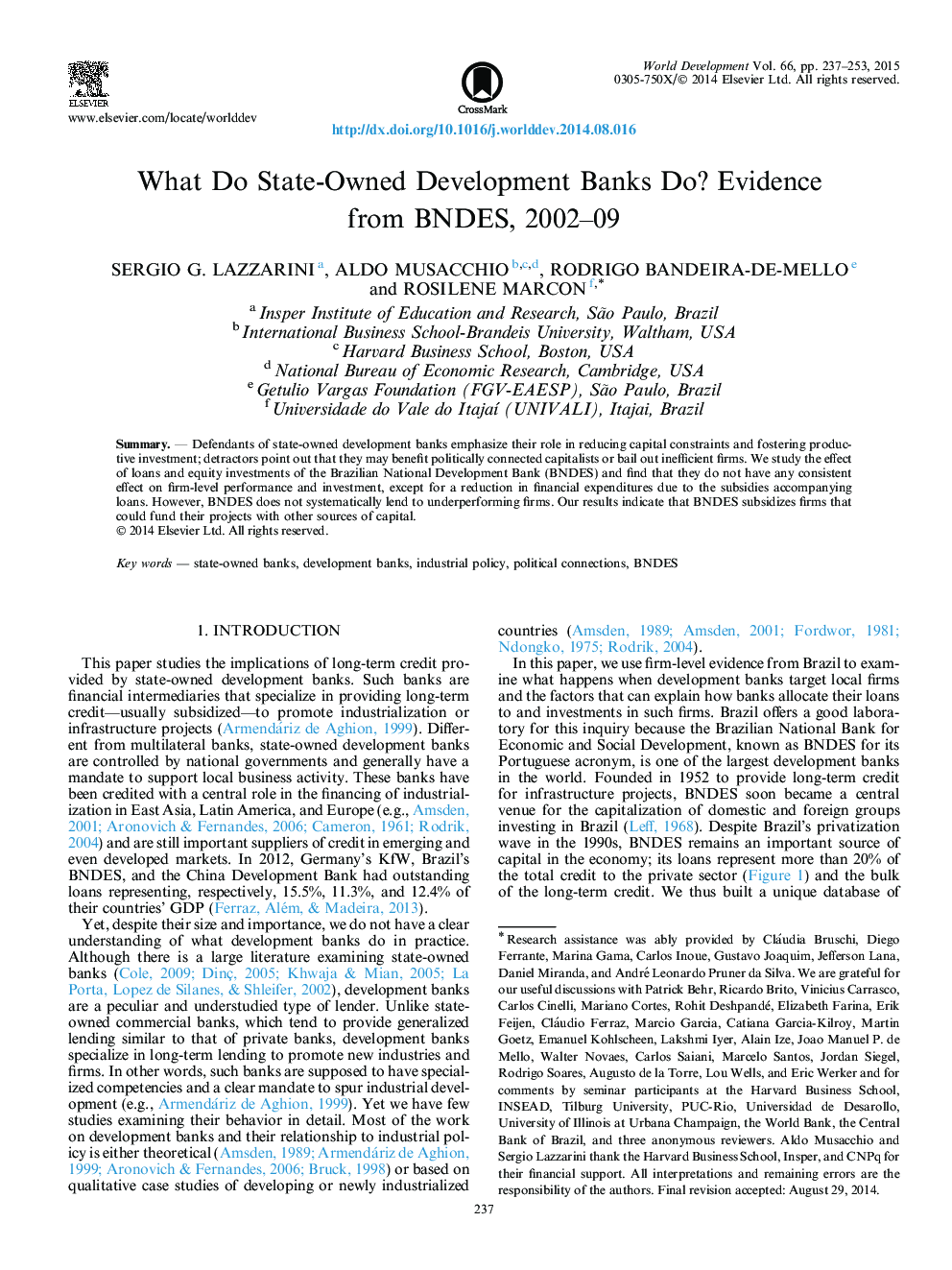| Article ID | Journal | Published Year | Pages | File Type |
|---|---|---|---|---|
| 7394435 | World Development | 2015 | 17 Pages |
Abstract
Defendants of state-owned development banks emphasize their role in reducing capital constraints and fostering productive investment; detractors point out that they may benefit politically connected capitalists or bail out inefficient firms. We study the effect of loans and equity investments of the Brazilian National Development Bank (BNDES) and find that they do not have any consistent effect on firm-level performance and investment, except for a reduction in financial expenditures due to the subsidies accompanying loans. However, BNDES does not systematically lend to underperforming firms. Our results indicate that BNDES subsidizes firms that could fund their projects with other sources of capital.
Related Topics
Social Sciences and Humanities
Economics, Econometrics and Finance
Economics and Econometrics
Authors
Sergio G. Lazzarini, Aldo Musacchio, Rodrigo Bandeira-de-Mello, Rosilene Marcon,
